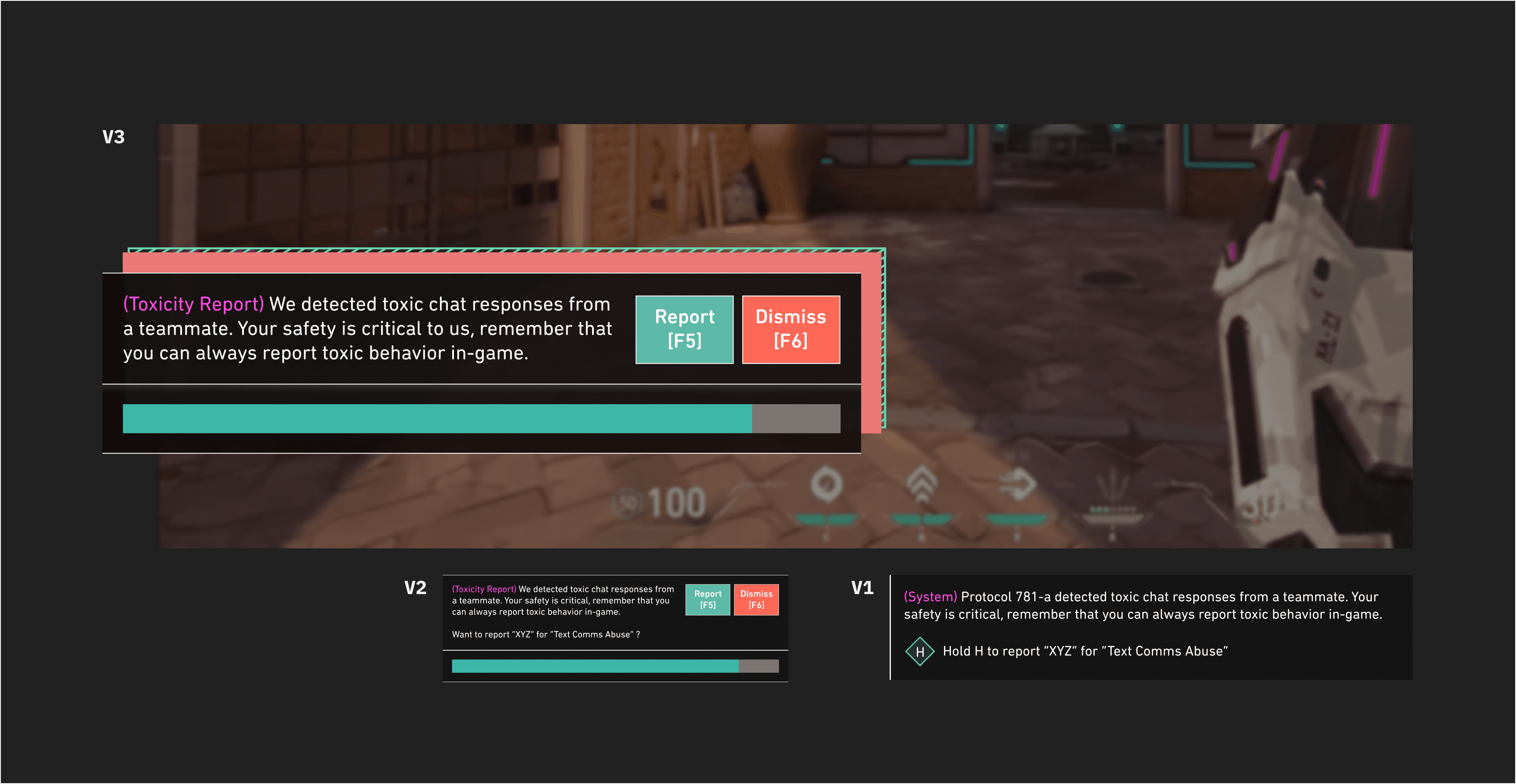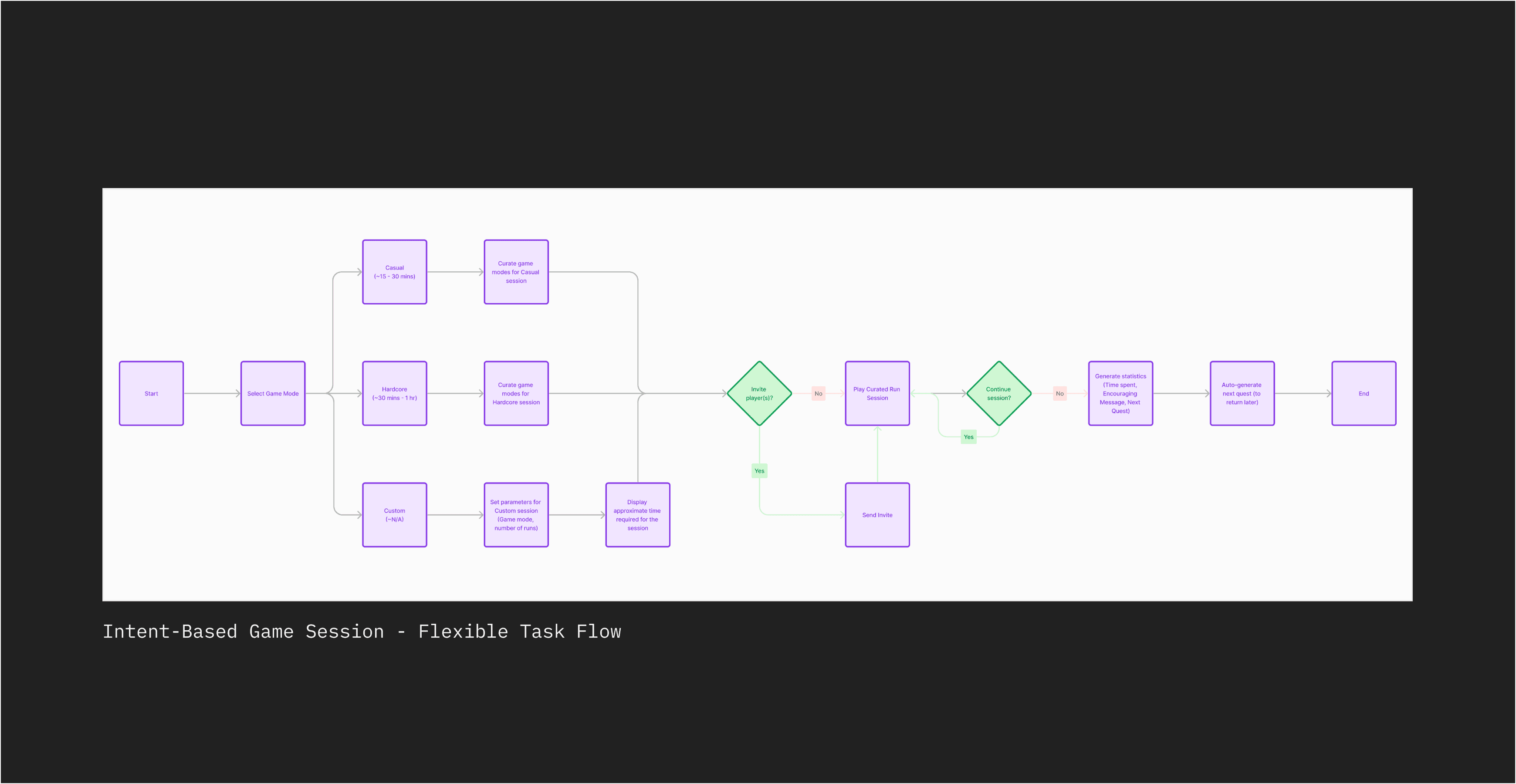Overview
Good-Game, Well-Played is a Master of Design research project exploring ethical design principles in game experiences. As a UX designer and researcher with a lifelong passion for gaming, I embarked on this journey to address potential negative impacts of game design while amplifying the positive influence games can have on players' lives.
The research delved into the intricacies of live-service model in games as a catalyst in sky-rocketing engagement in an industry that functions on it as one of the core principles. While the majority of the work explored ways to integrate ethical/responsible considerations for players through different pathways, I took it further by conceptualizing ethical game mechanics - conceptually applied to several online games with an attempt to balance business and player needs.
The research was presented to several academic supervisors and Dimeji Onafuwa, Head of E+D Product-Led Growth Research at Microsoft. I aim to continue this research through applied design as a game UXer.
Role
Masters thesis
User research
UX design
Team
1 × researcher
1 × supervisor
2 × reviewers
Year
2022-24
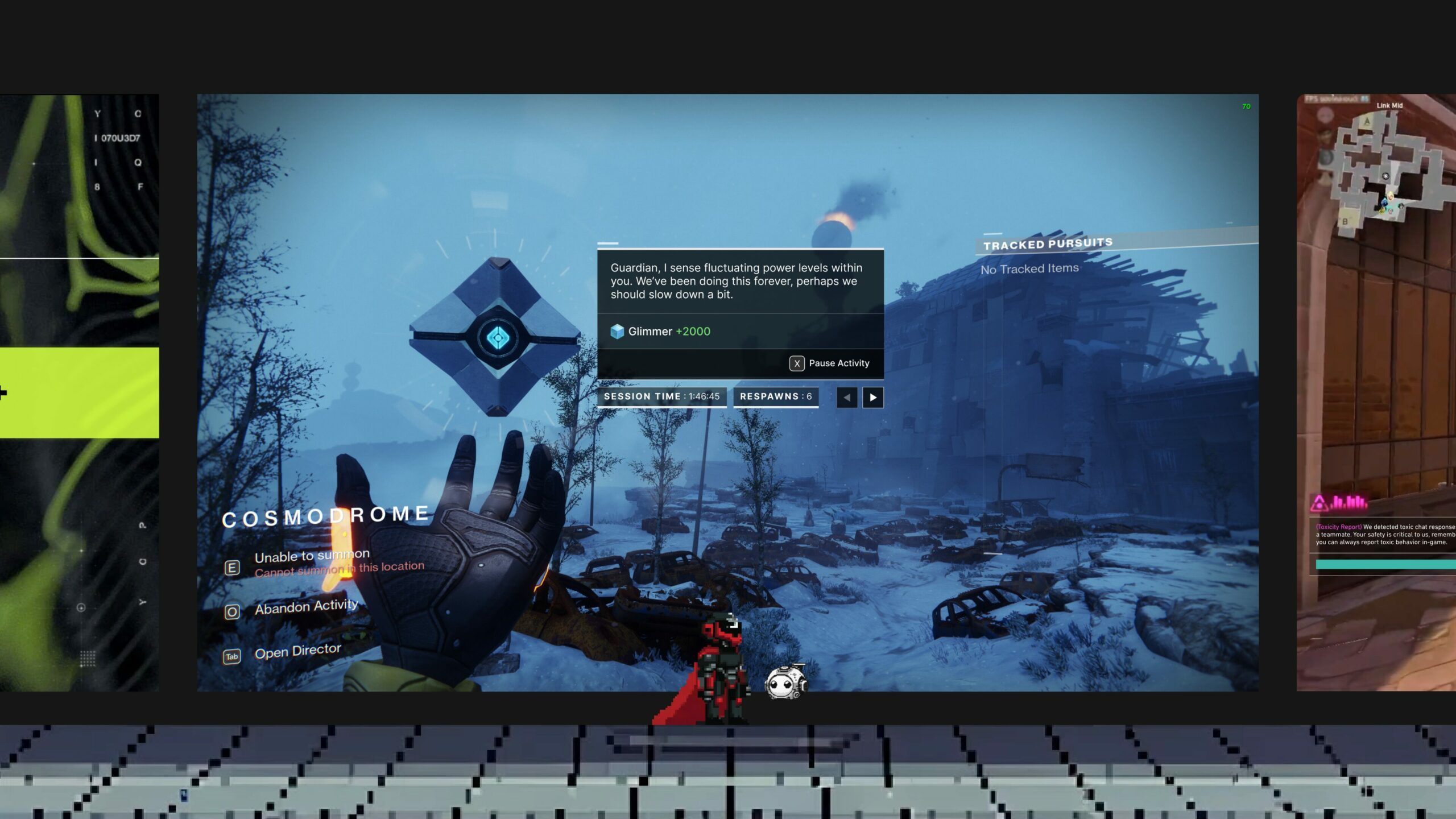
Process
The Challenge
The gaming industry often prioritizes engagement and monetization over player well-being, especially in online/live-service games. This project aimed to explore how ethical design practices could be integrated into game experiences without disrupting core gameplay or business models.
The Approach
I analyzed current game design trends and identified areas for improvement in terms of player well-being. The research focused on four ethical pathways:
Marketplace integrity
Policy and rating board evolution
Power of self-regulation
Transformation of game experience and mechanics
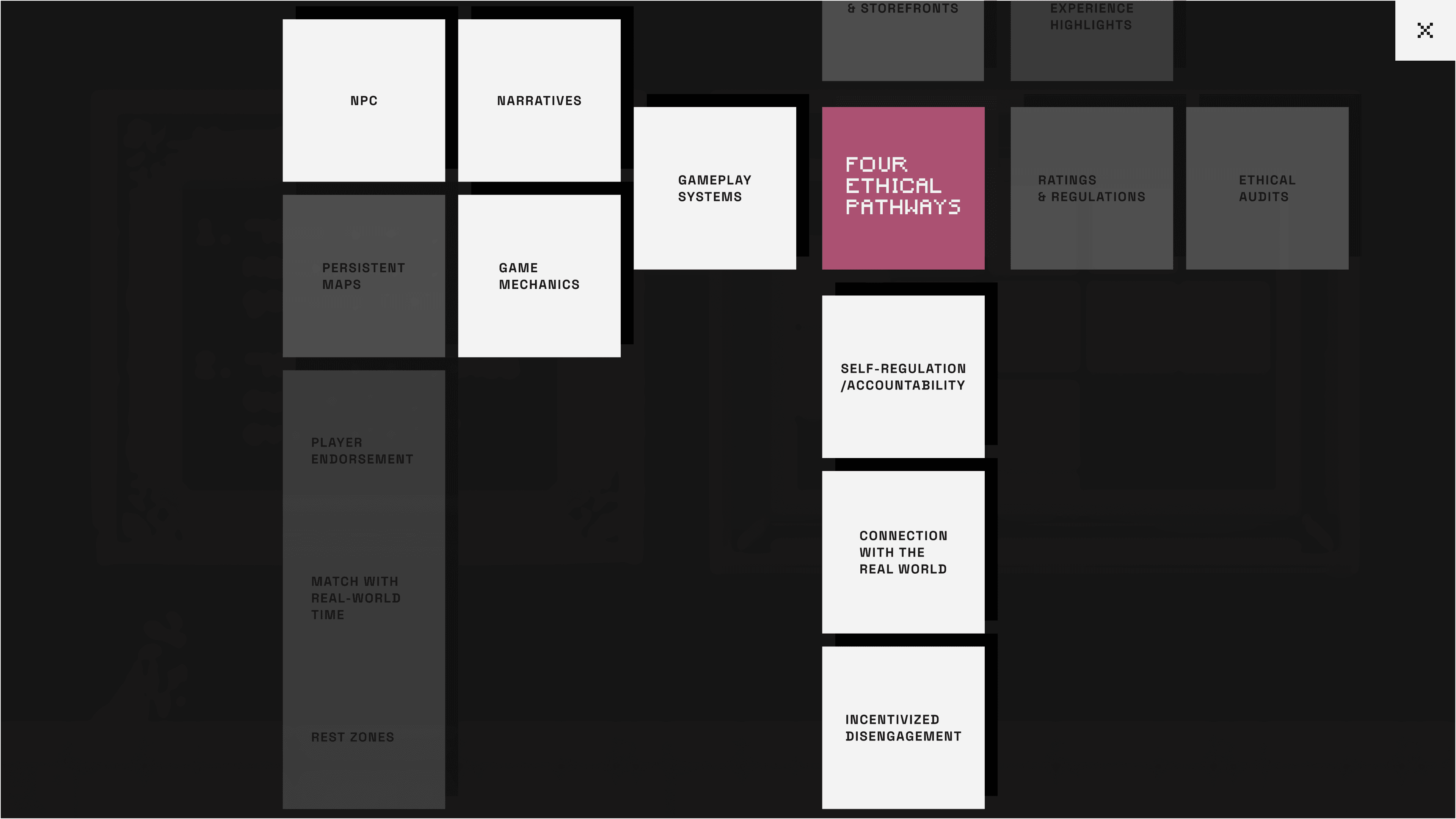
Several popular games were used as case studies or platforms for 'Good-Game' concept implementations, including Cyberpunk 2077, World of Warcraft, and Battlefield 2042.
Key Insights
Determining the pathways amongst other insights involved extensive Reddit conversations and discord game-nights. The "social value" of games turned out to be a multi-layered metric that primarily rooted from player attitude towards the game and its community. This led to further interventions. (Check out the thesis for more data)
Players are receptive to ethical design practices that promote well-being within games
Integrating ethical considerations into existing game narratives offers a practical approach for the industry
Game assets and elements have the potential to create significant social impact beyond supporting the story
Innovation and responsible AI adoption can create more context-aware and responsive games
Solutions
Intent-based gaming sessions
Addressing player engagement by exploring a concept based on Spotify’s enhanced playlist feature. The game curates a session based on the player’s intent. Players could embark on these runs solo or with friends and, upon completion, receive bonus XP to encourage wrapping up their session. Moreover, the game cleverly generates a new tailored run for the next day, incentivizing players to step away and return later. The solution tackles it through a system-driven solution as opposed to being a game mechanic.

AI-powered interactive skins
Focused on player’s mental health in competitive scenarios. Many games push our skills to the limits against other players. This is when toxicity becomes inevitable. These interactive AI-powered skins would surface disruptive behavior and empower the players to report it while also educating them, not to forget training the AI models for accuracy over time. This project was also a stab at balancing business needs and player health. Not too disruptive, just repurposing what they have into something meaningful. It creates a fair ground where game assets become an influence of safety.
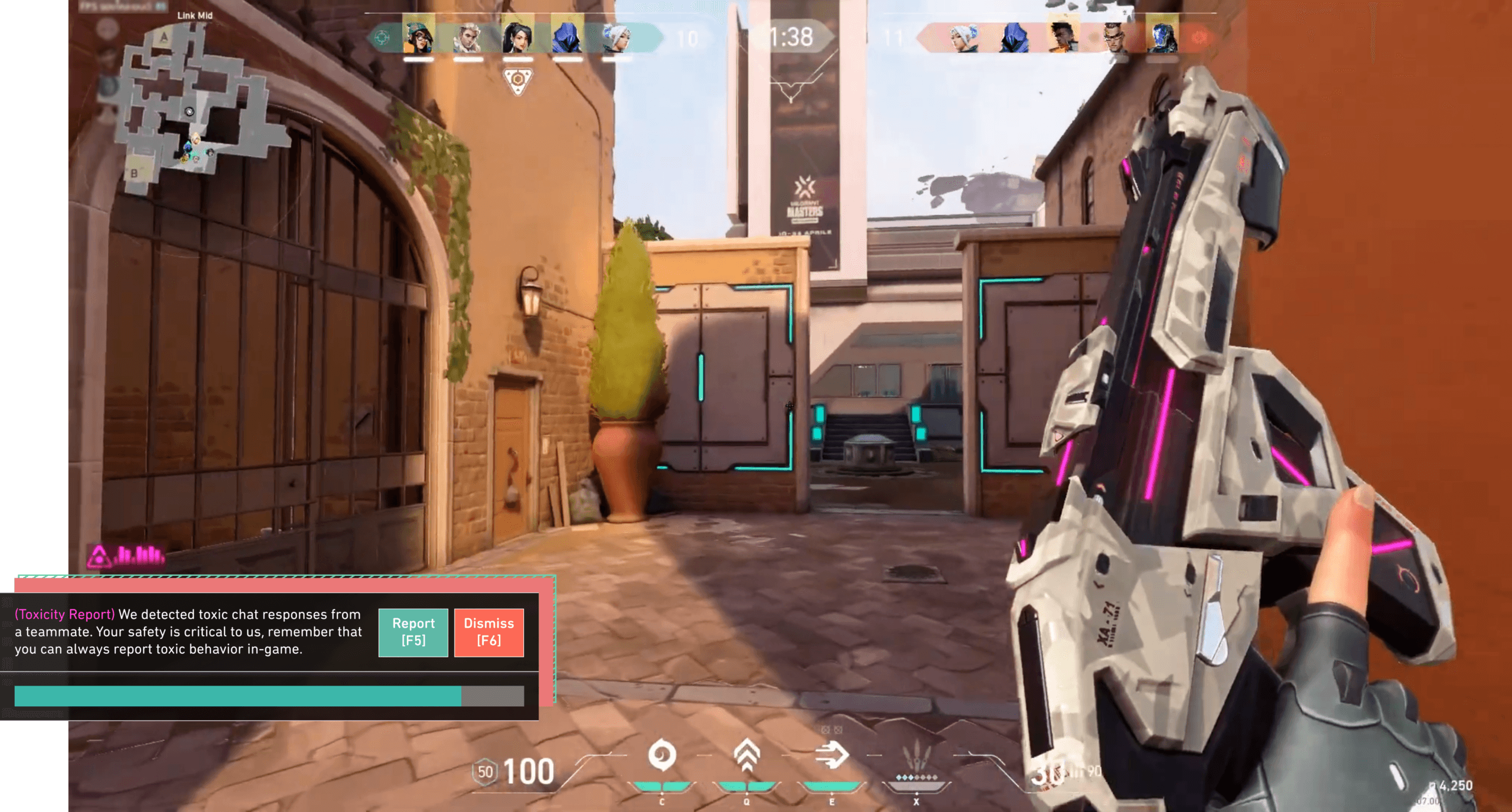
NPCs as support system
This project became a highlight of GGWP. It reimagines NPCs (Non-Playable Characters) to be more than just support in the storyline, a voice of reason. Combined with a few key metrics like session duration, number of retries, and a few others that the game already tracks, NPCs could easily incentivize disengagement or suggest a less intense activity by conversing with the player. The difference here is that unlike screen time or parental controls, this is drastically less disruptive and less likely to be ignored.
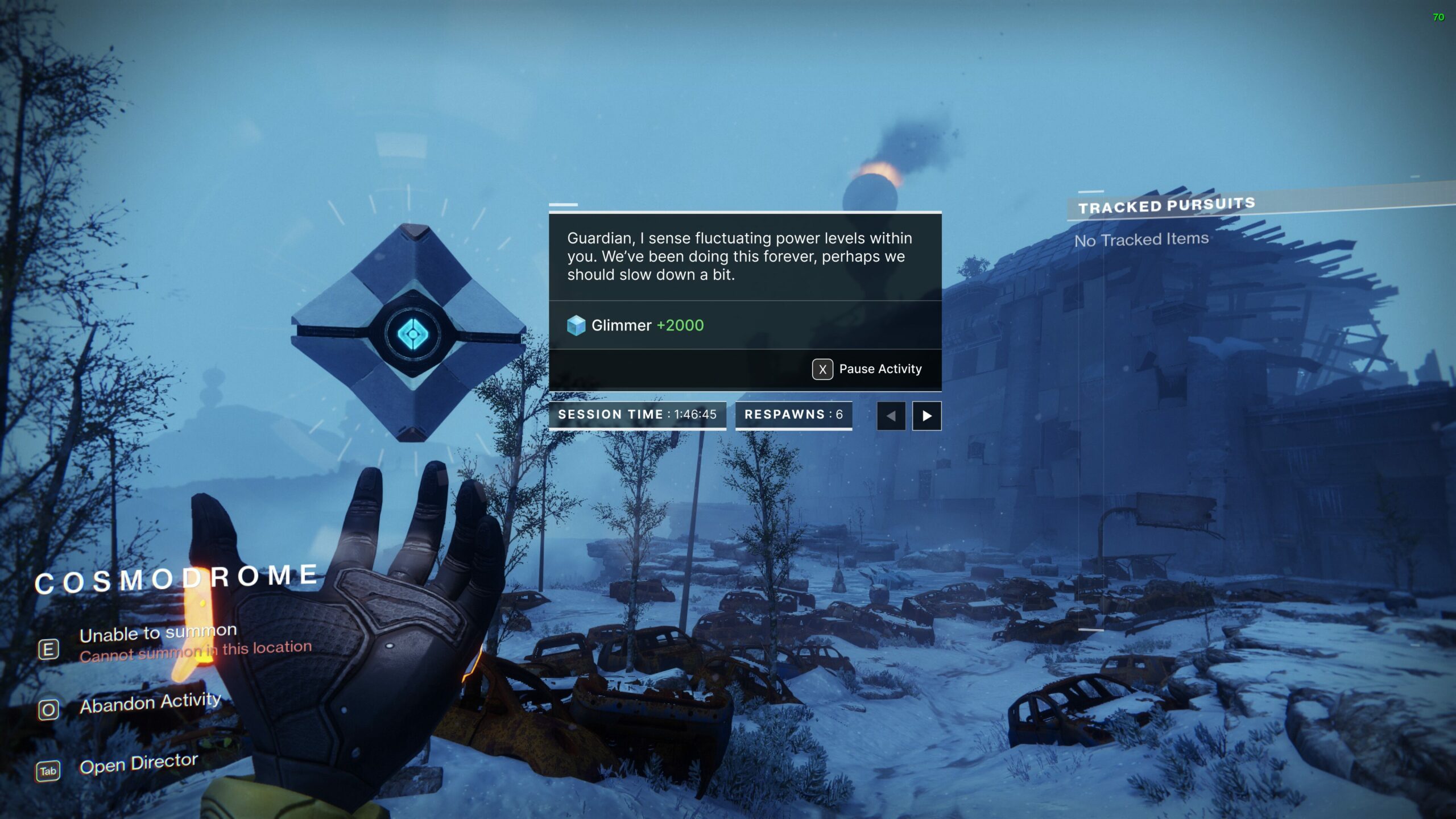
4 Ethical Pathways - Map
Flow of Social Value
NPC personalized support system - UI Iteration
AI skins toxicity detection prompt - UI Iteration
Intent-based gaming sessions - Task Flow
Outcome
GGWP highlights the potential for games to be a positive force in players' lives. By prioritizing ethical considerations alongside player engagement, the industry can create a healthier gaming environment and contribute to the overall well-being of players. This project was a springboard for further exploration and collaboration in the field of ethical game design to balance live-service models in the industry.
Future directions involve:
Develop specific metrics to evaluate the effectiveness of ethical design concepts in games.
Analyze how the games industry has evolved since the research (before/after).
Create ethical guidelines for the development and implementation of player-aware AI characters.
Collaborate with game developers and studios to test and implement ethical design practices in real-world game projects.




